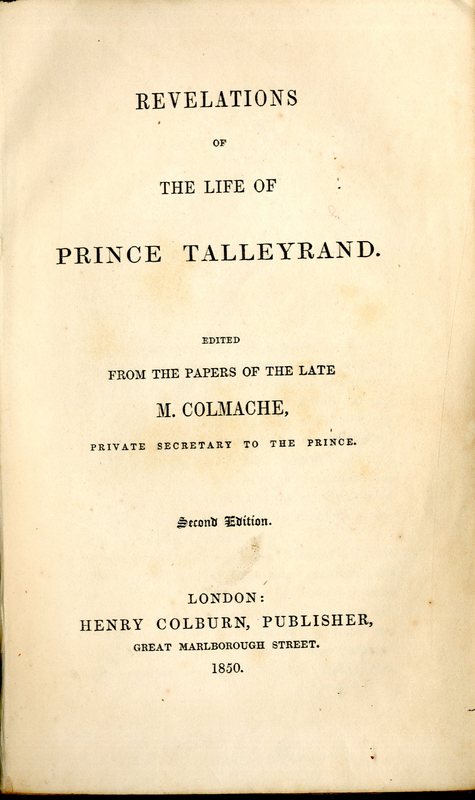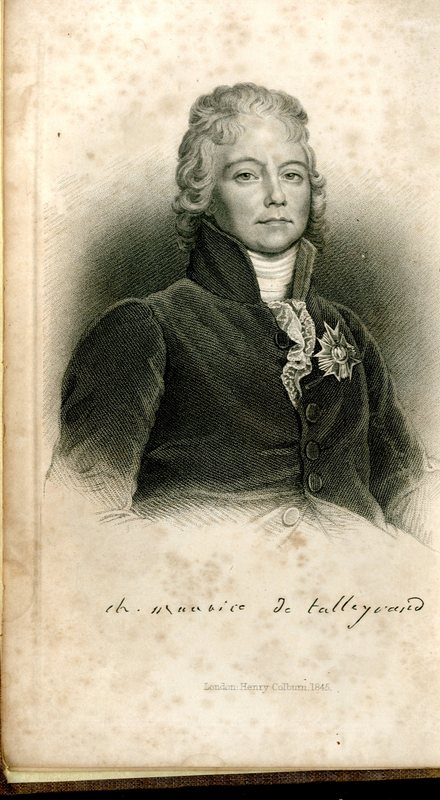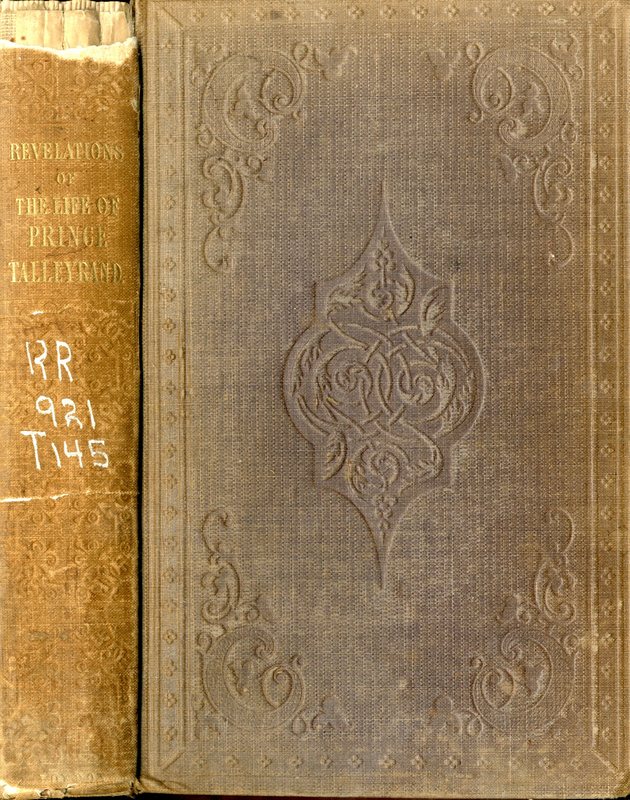Charles Maurice de Talleyrand-Périgord (1754–1838), prince de Bénévent, then prince de Talleyrand, was a French bishop, politician and diplomat. Due to a lame leg, he was not able to pursue the military career that had originally been foreseen for him by his family. Instead he studied theology. In 1780 he became Agent-General of the Clergy and represented the Catholic Church to the French Crown. He worked at the highest levels of successive French governments, most commonly as foreign minister or in some other diplomatic capacity. His career spanned the regimes of Louis XVI, the years of the French Revolution, Napoleon, Louis XVIII, and Louis-Philippe. Those he served often distrusted Talleyrand but, like Napoleon, found him extremely useful. The name "Talleyrand" has become a byword for crafty, cynical diplomacy.
He was Napoleon's chief diplomat in years when French military victories were bringing one European state after another under French hegemony. Most of the time, though, Talleyrand worked for peace so as to consolidate France's gains. He succeeded in obtaining peace with Austria in the 1801 Treaty of Luneville and with Britain in the 1802 Treaty of Amiens. He could not prevent the renewal of war in 1803. By 1805 he opposed his emperor's renewed wars against Austria, Prussia, and Russia in 1805–1806; he resigned as foreign minister in August 1807 but Napoleon still trusted him. Talleyrand connived to undermine Napoleon's plans and secretly dealt with Tsar Alexander of Russia and the Austrian minister Metternich. He sought a negotiated secure peace so as to perpetuate the gains of the French revolution. Napoleon rejected peace and when he fell in 1814, Talleyrand took charge of the Bourbon restoration based on the principle of legitimacy. He played a major role at the Congress of Vienna in 1814-1815, where he negotiated a favourable settlement for France while undoing Napoleon's conquests.
Talleyrand polarizes scholarly opinion. Some regard him as one of the most versatile, skilled and influential diplomats in European history, and some believe that he was a traitor, betraying in turn, the Ancien Régime, the French Revolution, Napoleon, and the Restoration.
http://en.wikipedia.org/wiki/Charles_Maurice_de_Talleyrand-P%C3%A9rigord
2d ed
First ed. pub. anonymously 1848, under title: Reminiscences of Prince Talleyrand [etc.]


